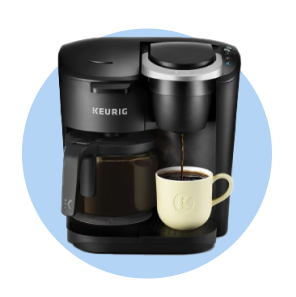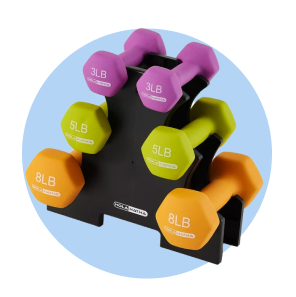
Healthy Office Meals: It’s About Culture as Much as Calories
Zooming out on employee health
Calorie count is the boogeyman of many modern diets, but healthy eating is about so much more than that. No matter where meals happen, true health and wellness goes far beyond caloric intake.
In the workplace, organizational culture has an important role to play in shaping dietary habits. Cultivating a food culture that prioritizes both physical and cultural nourishment is a great way to promote and share these core values at every level of the organization.

Promote healthy eating habits in the office
Workplace food culture isn’t just a measure of what’s stocked in the pantry or who caters lunch. Office meal culture reflects and influences broader aspects of a company’s ethos. It represents how the organization sees, treats and prioritizes employee well-being. Healthy meals also have a direct impact on the health of the business. These are just some of the business benefits workplaces can unlock by offering nutritious foods:
- Increase productivity
- Improve efficiency
- Boost morale
- Encourage engagement
- Reduce absenteeism
- Increase retention
- Attract new talent
It’s important to invest in employee well-being, but these benefits show that promoting healthy eating habits in the workplace can also have a broader business impact. In the end, the two outcomes go hand in hand.
On an individual level, healthy meals may help reduce obesity, avoid heart disease and keep other chronic conditions at bay. Maintaining a nutritious diet has also been shown to increase mood, energy and stamina. Studies indicate that cognitive function improves through nutrition, and productivity is supported by healthy snacks. It seems that the healthier employees are, the more likely they are to perform well at work and find satisfaction in their accomplishments.

Treat healthy foods as an invitation, not a rule
While many large-scale businesses have corporate wellness programs in place, workplace food culture can be a sticky subject. It’s hard to choose healthy foods on behalf of others or even have discussions about nutrition when finding the right diet is often a deeply personal challenge. While health and wellness are top of mind in today’s culture, bringing those topics into the office can be a minefield.
First, not all employees will be interested in having healthy food at work. Some may resent being told what to eat, others may rely on their favorite cheat meals or afternoon snacks to get them through the day. Food can be a personal topic for many, and some employees may feel uncomfortable discussing the subject altogether.
Be sensitive to these types of feelings and take care not to force your values on employees. Instead, aim to invite employees to partake in the healthy options on offer and discuss what nutrition means to them. Research shows that pausing to share lunch with colleagues can boost productivity, creativity and energy, so there are benefits to gathering for a midday meal even if employees have their own ideas about what qualifies as healthy.

Don’t shy away from clashing dietary restrictions
It can also be incredibly difficult for office managers and HR leaders to cater to a spectrum of dietary restrictions. When large groups come together and start eliminating off-limits foods, it can sometimes feel like there’s nothing left to eat. The best way to tackle this is to make room for as many dietary needs as possible, without establishing hard rules that eliminate anything or exclude anyone.
Encourage separation of sensitive ingredients in shared spaces like office break rooms, especially when it comes to common food allergens. When everyone works together to build a culture of health, it’s easier to avoid the need for strict policies. You can also try sparking open dialogue among coworkers, so that people have the opportunity to learn about each other’s cultures, dietary habits and food preferences. Look for ways to incorporate these celebrations into existing wellness programs, work parties and other office gatherings where food is involved.
Throughout history, breaking bread together has been an important social experience. While not everyone will feel comfortable disclosing their personal dietary requirements or allergies at work, it’s likely that some employees will be excited to share their favorite foods and recipes as a way to connect with their colleagues. Again, this is a question of balance. Go out of your way to focus on openness and sharing and make sure no one feels under pressure or excluded.
For more tips on stocking healthy and delicious office foods, read our article: 10 Tasty Options for the Office Kitchen & Break Room.
An integrated approach to workplace food culture
Food is just one picture of overall well-being, and office meals are just one piece of that puzzle. Build your strategy around balancing the nutritional, emotional, mental and energetic health of your employees, and you’ll be sure to make great strides toward a strong workplace food culture. From keeping your office kitchen stocked with healthy options to ensuring there are always healthy snacks on hand, create multiple enticing opportunities for employees to engage in well-being in the workplace.
Looking for more resources about building a healthier and successful workplace? Browse the Walmart Business Content Hub to find marketing tips, financial guides and more. For all of your other business needs, sign up for a Walmart Business+ membership to unlock free shipping with no minimum,1 free delivery from stores on orders over $352 and 2% rewards back for purchases over $250.3 You can even save over $500 a year!4 Learn more here.


Limited-time offer
Unlock your special promo code
Stay informed on Walmart Business news & get $20 off a $100 purchase!1
1Minimum order of $100. Promo code can be used one time & may not be combined with other offers. Offer not transferable & void where prohibited by law. Customer responsible for all applicable taxes. Offer expires 12/31/2025 at 11:59pm PT. Further restrictions apply. See terms at checkout for details. Promo code offers available in limited quantities. While supplies last.
1 Excludes most Marketplace items, freight and certain location surcharges.
2 Restrictions apply. Additional fee applies for Express delivery.
3 Exclusions apply. See full terms for details.
4 Savings based on 1 free $35+ delivery order vs. $9.95 fee and 1 free shipping order under $35 vs. $6.99 fee biweekly, plus 2% Walmart Business rewards on monthly order >$250 (average value of $400).
Exciting news awaits
Hear firsthand about new products, features & promotions.
By clicking submit, you agree to receive emails about Walmart Business and acknowledge you have read and agreed to our Terms of use and Privacy Policy.










